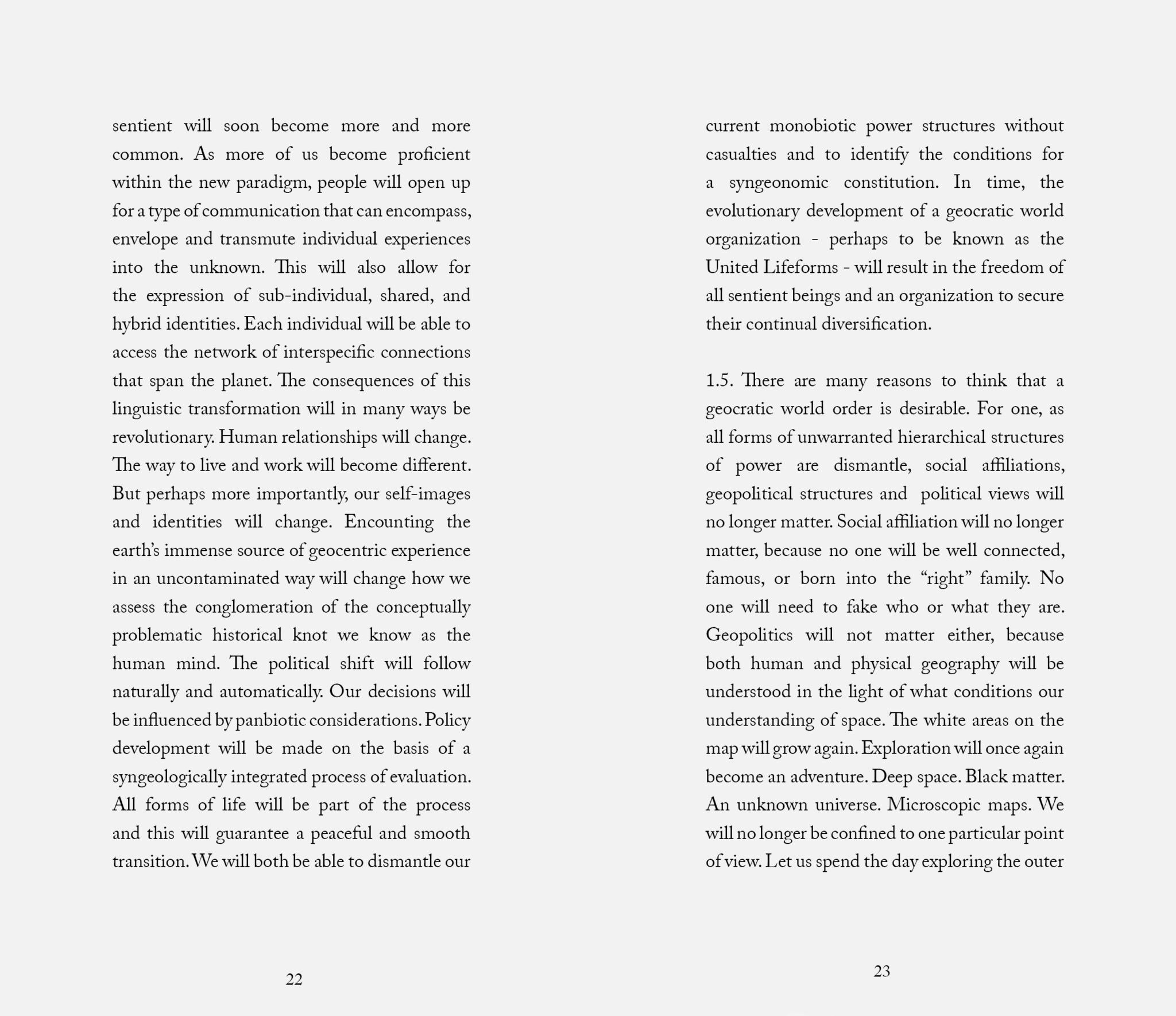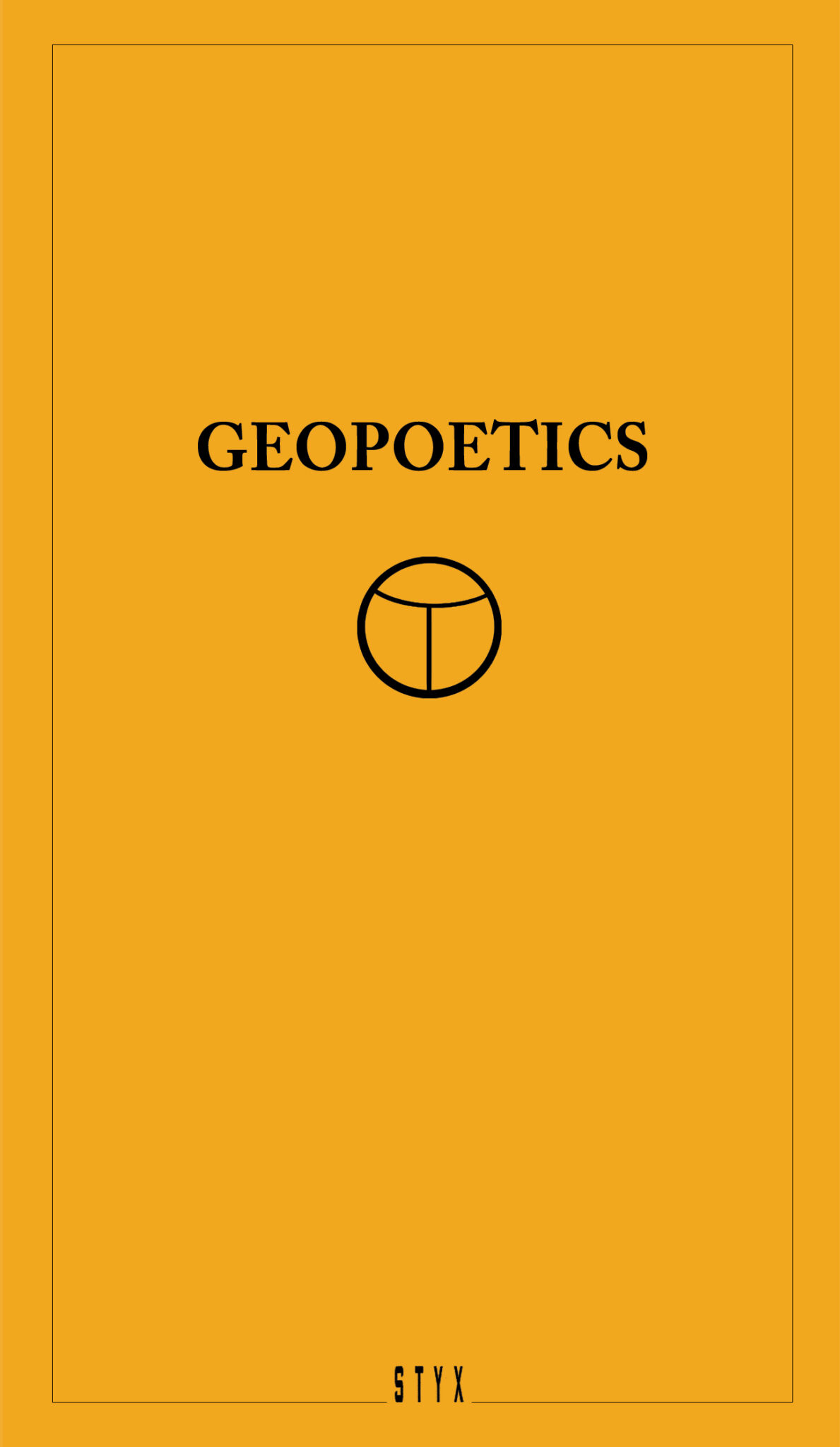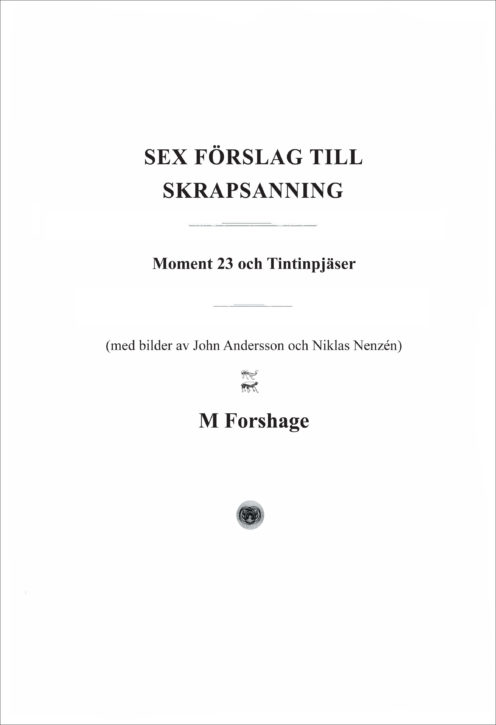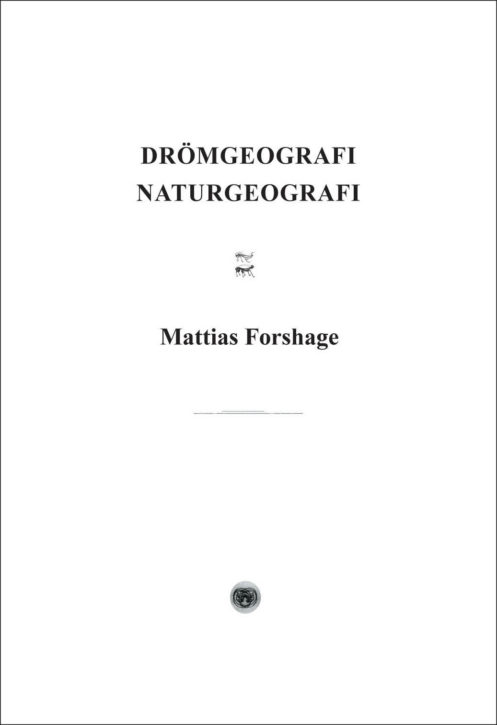GEOPOETICS
2019
Collaborative Authorship
English text
Contagious
Also in limited hand made edition
ISBN: 978-91-8574-776-4
[Coming soon]
Beskrivning
The purpose of the geopoetics is to understand and conceptualize what it means to exist on this planet. This, however, is currently not possible because the language we need to use in talking about the earth is polluted by a complacent anthropocentric point of view. As a consequence, the geopoetics first of all needs to be an emancipatory undertaking. Even if the ultimate aim is existential, the more immediate task is political. Before we can ask what it means to exist on this planet, we need to liberate our language from an obsolete semantics and from an unwarranted reductionist point of view.
The reductionist’s point of view from which we are trying to free ourselves is well known. On this view, the earth is said to be ours for the taking. It is described as a natural resource and as a source of economic wealth. As this kind of talk sustains and purports exploitation and abuse, the degree to which it is ingrained in our language is also exactly what makes the geopoetics political. We need stand our ground and refuse to reduce the earth to anything but a goal in itself.
Conceptually, our point of departure is self-critical. We presuppose that the earth is not what we imagine it to be. We assume that it cannot be captured by the human mind. This means that our poetical efforts are best described in terms of withdrawal. We need to let go. We know that the earth is too vast for us to understand. We know that it is incalculably rich. A plethora of beings. A myriad of states. The earth is all of its inhabitants. It is we. Our goodness and our evil. It is all sentient and insensate beings. All genders and bodies, both living and dead. It is all rivers and mountains, all ghosts and spirits, all plants and animals, all microbes and viruses, their minds, their history, our minds, our history, all memories, everything that has happened on, over and under the surface and all the possibilities and hopes of what has not yet occurred. Not, however, as isolated events, but as integrated parts of a unified whole.
The problem, then, is this: The fatal threats that the earth is now facing are the results of a coward indeterminacy that has allowed us to speak about it as an insentient globe and as a heavenly body without life. We cannot continue in this way. We feel it in your bones. We hear it in the wind. We imagine that the earth calls on us to make a change. The geopoetics is an attempt to answer this call.
A FIRST CONTRIBUTION
This book is a first attempt to outline how we understand this answer. This does of course not mean that this book claims to be capable of solving even a fraction of all the relevant problems. But it is an attempt to contribute with a first entry in the living and evolving geopoetical canon. As such, this book is also an initial attempt to articulate what currently known needs exist: an attempt to aid the reframing of our relationship with the earth, that is, to identify the most irreducible terms in our earth concept, exposing the most pressing problems therein, analyzing those problems’ underlying causes, offer sound suggestions as to how to handle these various issues, and, at the end, to help realize the conclusive and collective emancipation of all sentient beings. To reach this end we realize that we need to give up all efforts to capture and control what we are dealing with. We cannot accept the claim that the earth is something that we can comprehend. For this reason, the geopoetics must acknowledge and embrace a frank, honest and effective absurdity. A geopoetical examination must try to reach beyond what it can ever hope to accomplish. It must be open to the possibility that what will be found is not what is sought after. The bottom line is nevertheless the same. We need a shift of mind and of word. Without it, we can never hope to change the destructive actions of our species.
SOLIDARITY
As a result, the geopoetics is also always in solidarity with – or rather, in an anthropophagic relationship to – all those that are working towards similar goals: the climate activists, the workers, the precarious, the indigenous, the suppressed, the misrepresented, those without papers, those in transience, the non-whites, the non-males, the non-humans, the formerly colonized, the bought, the hidden, the misfits, the censored and the illegal. We do not believe that there is one answer. Collaboration is the key. The mind work is necessarily diverse. We need to deprogram a widespread monobiotic concept of sentience and society. The geopoetics is therefore not only a weapon against the status quo, but also a tool for all those willing to withdraw together with us and leave room for the earth to finally rule itself again.
Read more about the book at its product page…







